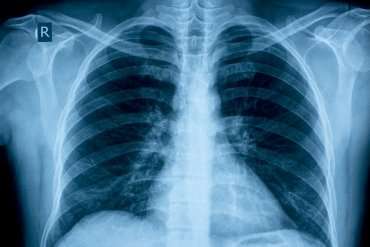Long-term health impacts from wildfire smoke may include cardiac, respiratory effects

As the deadly wildfires that devastated Northern California this month come under control and residents begin the process of rebuilding, one question that lingers is the longer-term health effects of the smoke.
The answer to that question isn't universal, said John Balmes, MD, a UC San Francisco pulmonologist and an expert on the respiratory and cardiovascular effects of air pollutants.
Young children, the elderly and others who may be frailer because of health conditions may be more affected by the smoke. Most healthy adults can recover fully from respiratory smoke damage, even in severe cases.
What Was in the Smoke
Heavy winds during the blazes carried particulate matter across the Bay Area, and the scent of campfire was an indicator that most of the smoke came from burning wood, Balmes said.
"When carbon-based fuels like wood burn, you get particles with a carbon core that have complex hydrocarbons on their surface," said Balmes. "It's these complex hydrocarbons that are toxic."
Most worrisome are so-called PM2.5 particles, tiny particulate matter small enough to lodge deep in the lung. These hydrocarbon particles chemically injure the lung tissue, causing inflammation.
Though the majority of the smoke was from wood and grass burning, the fires also burned through neighborhoods and other areas with buildings, adding particles from cars, furniture and other goods.
Just what particles were released from the manmade materials remains unclear. Atmospheric chemists from UC Berkeley, where Balmes is also a professor of environmental science, are working to understand how that may have changed the composition of the smoke.
Because most of the smoke was from vegetation, any toxic particles released by manmade materials were likely to be diluted considerably as the smoke traveled through cleaner air on its journey throughout the Bay Area, Balmes said.
Longer-Term Respiratory Impacts
With a vast majority of the Bay Area affected by the smoke, it was difficult to avoid inhaling the particles.
For people who may be concerned about their respiratory system after the fires, the good news, according to Balmes, is that the lungs of most healthy adults can recover fully from smoke damage, even in severe cases.
"It's similar to recovering from a severe bout of pneumonia," he says.
Of course, groups that are more vulnerable to long-term effects of pneumonia are also more likely to be affected by smoke: young children, the elderly, and people with pre-existing respiratory conditions.
"Young children take more breaths per minute and they're more active," Balmes said. "So they get a greater dose of the smoke relative to their size."
In addition, the lungs of youngsters are still developing. The elderly are generally more frail and can't tolerate as much injury.
Smoke inhalation can exacerbate asthma and chronic obstructive pulmonary disease (COPD), though the effects may not be permanent. In some cases, extreme smoke inhalation can cause asthma that is triggered by future exposures to smoke.
Not Just the Lungs: Hearts, Too
Surprisingly, the greatest long-term risk factor, according to Balmes, isn't respiratory, but cardiovascular.
"The American Heart Association recognizes outdoor particles as an effector for short- and long-term health effects," he said.
The risk is three-fold: Inflammation in the lungs can become systemic, affecting the whole body's vascular function; the risk for blood clots increases, which can lead to heart attack or stroke; and the autonomic nervous system is stimulated, which can cause heart arrhythmia.
In addition, Balmes says, "There's good evidence that these effects can accelerate atherosclerosis, the plaques that build up inside blood vessels."
These effects usually subside after the smoke does, says Balmes. But in the moment, they could lead to arrhythmia or a heart attack, which can have long-lasting consequences.
The immune system can be affected similarly from long-term exposure to pollutants. In a study Balmes conducted on children, he found that some kids chronically exposed to certain air pollutants that are also found in smoke can develop new allergies or chronic asthma. These cases, Balmes says, would have involved chronic exposure over months rather than days.
Picture Still Not Clear
The hardest part for doctors and researchers is understanding how much exposure to wildland fire smoke could lead to longer-term health problems.
Balmes said he doesn't think anyone has been able to study chronic effects of smoke exposure over time.
"I think there's great interest in doing that," he said. "But fires are unpredictable in terms of their timing. Unless someone has a cohort assembled for some other reason, it's hard to pull together enough folks to study properly on a longitudinal basis."
While tragic, the fires in the North Bay present an opportunity for researchers to learn more about the long-term effects of exposure to smoke. "Particularly for cardiovascular outcomes," Balmes said. "There's lots of room for more research."





















